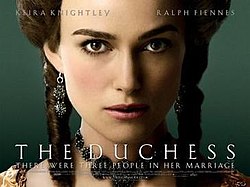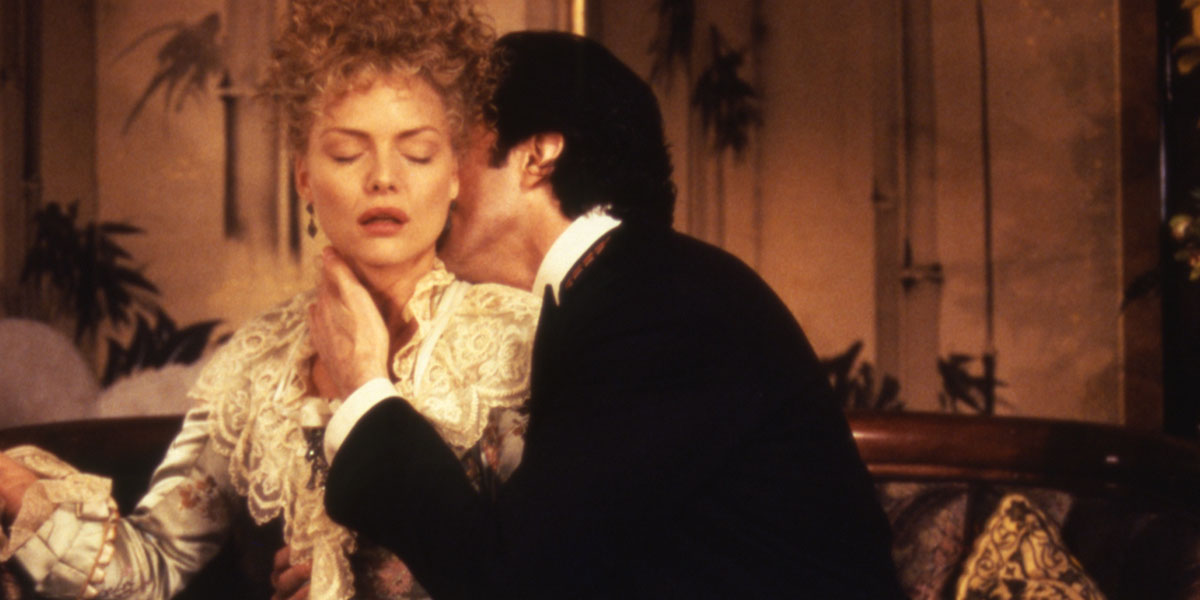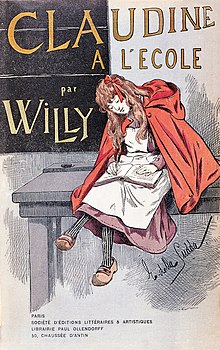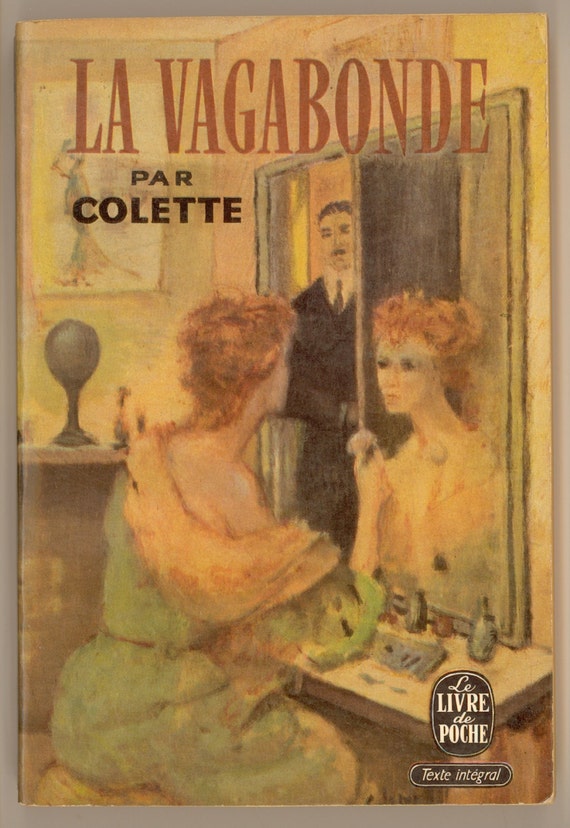Colette's an old-fashioned period piece Hollywood big movie featuring two internationally recognizable faces, playing recognizable celebrity faces of the time, expensive, slick and glossy.
Emphasis on celebrity. The author and her husband, and the infamous Claudine books (1900 - 1904) she ghost wrote and Willy took the credit for (and all the very significant profits, which he threw away profligately on race horses, the gambling tables, wine, women and song), were indeed all the rage when they came out. Yet these celebrity sequences seem more like now than then, yah?
As usual with historical drama, it's rather too clean and flat in panorama, mise-en-scène and close-up to be convincing (no broken down horses pulling public hacks, no manure in the streets, no bad teeth). As Colette and Willy are writers, and writing is not a dramatic moving, action act, we have lots of tasteful noisy sex instead.
This viewer found the all-British cast and production hilarious, as everyone speaks in posh Brit English, but, when they write, we’re shown French pouring out of the nib, voiced-over in the posh English.
Further hilarity ensues due to Dominic West as Willy, who is best known for playing Usian Baltimore detective cad-to-women, McNulty, on The Wire, and lately, for at least 4 seasons, the Usian novelist cad-to-women, Noah Soloway, on The Affair. Another point of hilarity is the current Poldark’s Demelza’s actor, Eleanor Tomlinson, playing bisexual sex scenes, in one of the worst so-called Southern accents evah – she’s supposed to be from New Orleans. Brit actors always murder Southern accents, seemingly not even understanding that there are very many different Southern ways of speaking. (Personal unpopular opinion -- Tomlinson's Demelza annoys the heck outta me. So far there's been no indication that Tomilinson can act, whether in period Agatha Christie's Ordeal By Innocence (2018), or on Poldark or in Colette.)
Points in favor of the flick: if not provocative of thought, it's gorgeous to look at; Knightly impresses with her non-body double or stand-in lengthy action scenes that involve a variety out of the standard repertoire of theatrical skills, from miming to dancing; Knightly is more convincing -- despite not being believable for a second as a 17-year-old - as a fin de siècle, Gilded Age figure than she was as the Georgian era title character, in The Duchess.
....(Colette eventually goes on the stage after leaving Willy, traveling music halls and theater throughout France, many of them ramshackle and many a gig that doesn't pay much more than for wine and cheese. This is part of her biography, but the film makes it look far less grueling and impoverished than Colette's own testimony, and those of others, inform us.)
.... (Knightly was as wrongly cast for that one as Winona Ryder was in Scorsese's Age of Innocence, her Gilded Age flick -- though Michelle Pfeiffer was perfect as the USian Polish Countess-by-marriage -- Knightly even looks like Winona Ryder in this. Her body type did not conform in any way to the fashions as they were, nor did her body language, just as Ryder's did not.)
 |
| (2008) |
 |
| Michelle Pfeiffer, Daniel Day Lewis, Age of Innocence (1993) |
Colette’s life in truth was messy, unlike this adult coloring book of luxe La Belle Époque France movie, which is splashed as “true feminist story!” Nor was Colette particularly feminist. So much of her fiction, despite the bisexual frissons, was about women victimized by, sighing, dying for love – love of a male cad.
... (Her Chéri novels were a refreshing exception to that, as it is the young lover infatuated with an aging, retired courtesan is the one who dies for his love. The 2009 film, Chéri, centering one of my favorite to watch actors, Michelle Pfeiffer as Lea, the exquisite, retired courtesan from the days of les grandes horizontals, whom Chéri cannot grow beyond, is exquisite in all the right ways, faithful in tone and attitude to the novels.)
 |
| MIchelle Pfeiffer as Lea, Chéri, 2008 |
It was a holiday yesterday, but still the theater held a respectable number of audience members. The variety of the audience was interesting: lesbian couples of various age cohorts; young hetero couples (one of whose male half kept getting up and coming back, disturbing everybody in lumbering oafish style for extended periods of time going and coming -- even clanging metal -- what? ); and a surprising number of young male-male couples, though these I had no way of knowing whether they were gay or not, and single young fellows.
The conversation in the line for the ladies room after the showing was disheartening due to the enormous amount of misinformation being bandied about as fact about Colette and her work. I seem to have been the only one there possessing solid grounding in her life and the period she lived in, and the only person who had actually read her work.
A last point of hilarity: in the ladies room line, it was being repeated from the closing epilogue text verbatim, that "Colette was the most important woman writer in France. She changed fiction forever."
 |
| This book, this edition, is still on my shelves. |
 |
| This book is still on my shelves too. I re-read it again, just last year. |
I kept hearing Simone de Beauvoir's outrage. I recalled her gleeful, merciless dissection of Colette's helpless, hapless feminine dependency on having the love of a man, of being in love, in order to have meaning, significance and identity, especially in The Second Sex (1949). This, though in many ways, hilariously, hers and Colette's novels have much more in common in this area than Beauvoir herself realized: so much doomed love, clothes making the woman, intellectual and creative and sexual rivalries as they contain. The difference though, is that Beauvoir’s stand-in in her autobiographical novel, She Came To Stay (1943), Françoise, literally, with her own hands, kills off her rival for Pierre’s devotion. Perhaps Beauvoir believed Colette earned her condemnation by being too femininely weak to do the same . . . . Actually, She Came to Stay is period novel I'd love to see turned into a film.




No comments:
Post a Comment